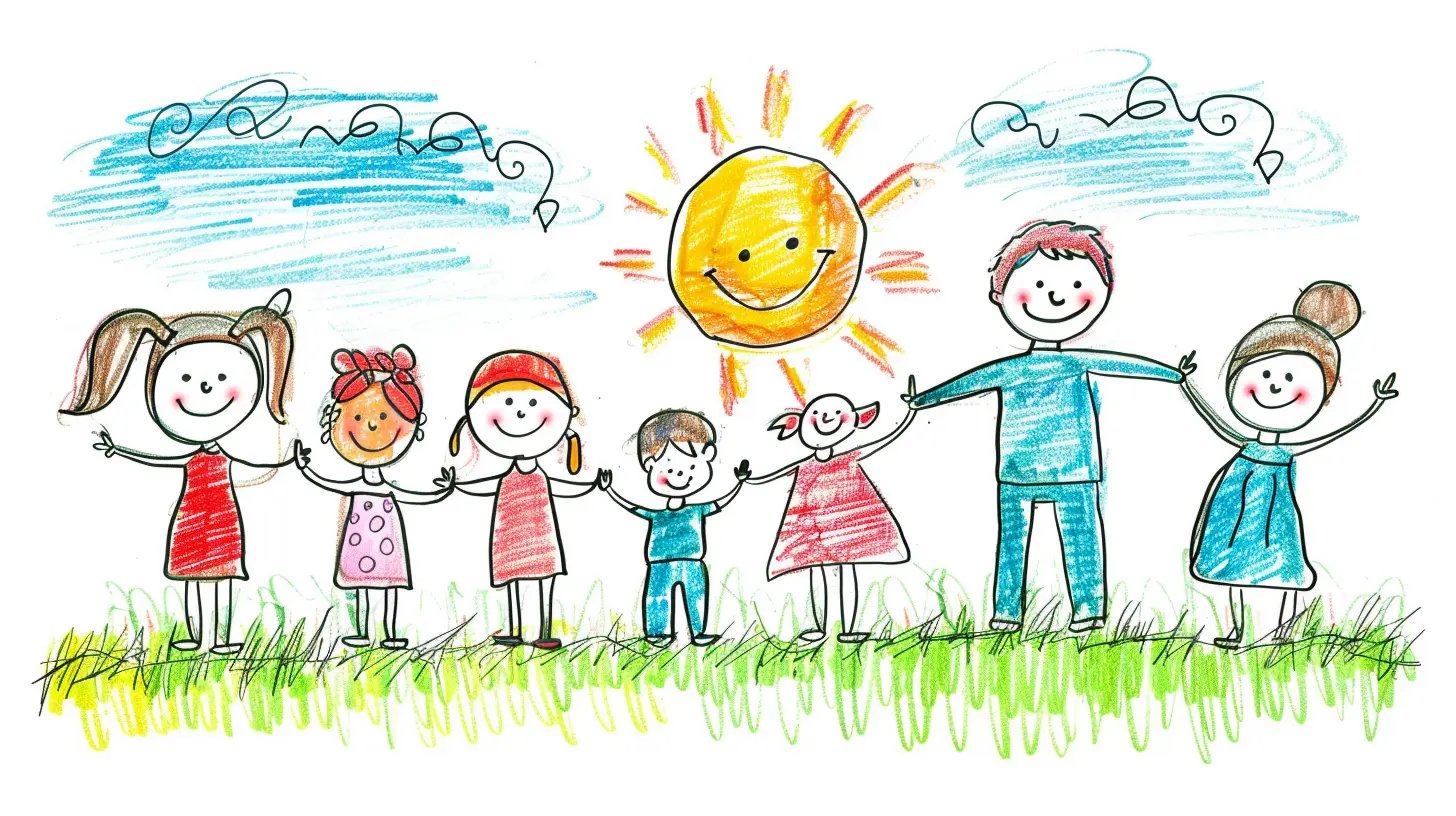The Role of Extended Family in Single-Parent Households
14 September 2025
Parenting is no walk in the park, especially when you're doing it alone. Single parents carry a heavy load—juggling work, discipline, school runs, emotional support, and so much more. It's a full-time job with no punch-out clock. But there's a hidden gem that can make this journey a little less overwhelming: the extended family.
In a world that often glorifies the nuclear family, we sometimes forget that it truly does take a village to raise a child. Grandparents, aunts, uncles, cousins—even close family friends—can shape a child’s life in powerful, meaningful ways. And for single parents hustling to keep all the plates spinning, these extra helping hands can be absolute lifesavers.
Let’s break down how extended family steps into the picture, why their role is so vital, and how their presence can be the secret sauce to a thriving single-parent household.
What Exactly Is "Extended Family"?
Before we jump into the nitty-gritty, let’s define what we’re talking about. Extended family includes anyone outside the immediate parent-child household—basically, the people you’d invite to a family reunion (and maybe a few you wouldn’t). Think grandparents, uncles, aunts, cousins, and sometimes even close friends who step in like family when needed.They might not live under the same roof, but they often play an active role in a child’s everyday life—emotionally, financially, or just being there with a warm hug or advice when you need it most.
Why Single-Parent Households Benefit From Extended Family Support
Parenting solo is a tough gig. Financial stress, emotional exhaustion, and logistical nightmares (hello, forgotten science project due tomorrow) can pile up fast. That’s where extended family shows up like the Avengers—but in sweatpants and bearing casseroles.Here’s why their support is worth its weight in gold:
1. More Hands on Deck
One person can only do so much. When grandparents can babysit or an uncle can pick the kids up from soccer practice, it takes a mountain of pressure off a single parent’s shoulders. It’s like having backup dancers for the crazy performance that is parenting.2. Emotional Support for Everyone
Kids need love from multiple sources. Extended family can provide additional layers of emotional support that help kids feel secure and valued. At the same time, single parents benefit from having someone to vent to or seek advice from when it all feels like too much.3. Filling the Gaps
Whether it’s a grandpa teaching carpentry, or an aunt modeling career success, relatives can fill in gaps that may exist due to the absence of the other parent. Extended family provides a richer tapestry of life experiences that help children grow and mature.4. Fostering Family Identity and Culture
Extended family plays a huge role in preserving traditions, values, and that all-important sense of belonging. From Sunday dinners to cultural holidays, these moments help children connect with their roots, something especially significant in single-parent settings where maintaining family identity might otherwise slip through the cracks.
Grandparents: The Heartbeat of the Extended Family
Let’s be real—grandparents are often the MVPs of extended families. They tend to be the go-to for babysitting, storytelling, and doling out wisdom that’s stood the test of time.But their role goes way beyond free childcare. Here’s why grandparents matter so much:
- Emotional Anchors: They offer stability, love, and structure—especially when family life feels disrupted or chaotic.
- Generational Wisdom: Having raised their own kids, they bring tried-and-true parenting advice (even if some of it is a bit old-school).
- Bonding over Heritage: They’re usually the link to family history, traditions, and those embarrassing stories that kids secretly love to hear.
That being said, boundaries are important. While their help is invaluable, it’s also okay for single parents to set clear expectations—because nobody wants unsolicited "back in my day" lectures about screen time.
Aunts, Uncles, and Cousins: The Unsung Heroes
Not to be outshined, aunts, uncles, and cousins also bring some serious value to the family dynamic. They’re like the cool sidekicks in a superhero movie—offering fun, guidance, and sometimes a reality check.What They Bring to the Table:
- Role Models: Aunts and uncles can provide alternative adult perspectives, especially helpful during those rebellious teen years.- Fun and Relief: They often create a joyful, less-pressured space for kids to feel free and creative.
- Emergency Backup: Whether it’s an unexpected school closure or a last-minute work trip, they can swoop in and save the day.
Even cousins play a part. They serve as playmates, confidants, and a sense of camaraderie—especially important if the single-parent household has only one child.
Emotional Boosters: Nurturing Resilience in Children
Extended families don’t just help with logistics—they help shape emotionally resilient and socially well-adjusted kids.When children grow up around multiple loving adults, they learn different ways to communicate, resolve conflicts, and express emotions. They build trust in others, understand the importance of community, and develop a wider emotional vocabulary—things that matter A LOT as they grow up and step into their own.
Also, knowing that they have a “team” behind them gives kids a sense of security and self-worth that lasts a lifetime.
Challenges in the Mix (Let’s Keep It Real)
It’s not always sunshine and hugs. Involving extended family can come with its own set of challenges.1. Differing Values or Parenting Styles
Sometimes grandparents want to spoil the kids. Other times, a well-meaning aunt might cross a boundary. Not everyone is going to agree on bedtime, discipline, or what’s appropriate on Netflix.You’ll need some solid communication—and maybe a few deep breaths—to make sure everyone stays on the same page.
2. Overstepping Boundaries
It’s great when family members want to help, but sometimes too much involvement can leave a single parent feeling like they’re backseat parenting.Clear roles, honest conversations, and mutual respect are key to keeping things smooth.
3. Availability and Proximity
Not all families live close by or have flexible schedules. Some may want to help but simply can’t. In those cases, it’s worth exploring alternative support networks (like close friends or community groups) who can step into similar roles.Tips for Building a Healthy Extended Family Dynamic
Want to make the most of the support around you? Here are a few practical tips:1. Communicate Openly
Start by sharing your parenting goals, values, and boundaries. Encourage your extended family to ask questions, offer feedback, and share their own experiences, too.2. Define Roles Clearly
If Grandma is your go-to babysitter, let her know what’s expected. If Uncle Joe is handling math tutoring, tell him exactly how you’d like it approached. Clear roles = fewer misunderstandings.3. Show Appreciation
Whether it’s a thank-you note, a home-cooked meal, or just a heartfelt phone call, acknowledging your extended family’s efforts goes a long way. Everyone likes feeling needed and appreciated.4. Create Shared Traditions
Build your own family rituals, whether it’s pizza Fridays with cousins or summer trips to Nana’s house. These meaningful traditions create lasting memories and reinforce the bond between everyone involved.5. Stay Flexible
Family dynamics change. People move, relationships evolve, and kids grow. Stay open to adapting the way your extended family is involved—it’s all part of the journey.When Extended Family Isn’t an Option
In some cases, extended family isn’t readily available—due to distance, estrangement, health reasons, or other complications.If that’s your situation, take heart. Family isn’t always about blood—sometimes it’s about the people who show up and love your children like their own. Trusted friends, neighbors, co-workers, church groups, and parenting communities can offer the same kind of support and connection.
The goal is to build what experts call a "supportive village," no matter what shape that takes.
A Word for the Single Parent
If you're parenting solo and reading this, let me just say—you're doing an amazing job. It’s okay to ask for help. It’s okay to lean on others. In fact, it’s more than okay—it’s often the healthiest thing for both you and your kids.Letting extended family play a role doesn’t mean you’re not enough. It means you're wise enough to know that love, guidance, and support are not limited resources. The more your child has, the richer their life becomes.
Parenting doesn’t have to be done alone—even if you're the only parent at home.
Final Thoughts
The role of extended family in single-parent households can’t be overstated. They are the extra laughs at dinner, the shoulders to cry on, the tutors, the mentors, the cheerleaders, and sometimes the disciplinarians too.Their involvement can transform the single-parent experience from one of survival to one of community, connection, and thriving.
So if you’re lucky enough to have extended family that’s ready to pitch in—welcome them with open arms. And if you’re still building your village, know that support is out there. You don’t have to walk this path alone.
all images in this post were generated using AI tools
Category:
Single ParentingAuthor:

Steven McLain
Discussion
rate this article
1 comments
Taylor Brooks
What a wonderful perspective! Extended family can be a lifeline for single parents—support, love, and shared wisdom make all the difference!
September 21, 2025 at 3:22 AM

Steven McLain
Thank you! I completely agree—extended family truly plays a crucial role in providing support and love for single parents.


